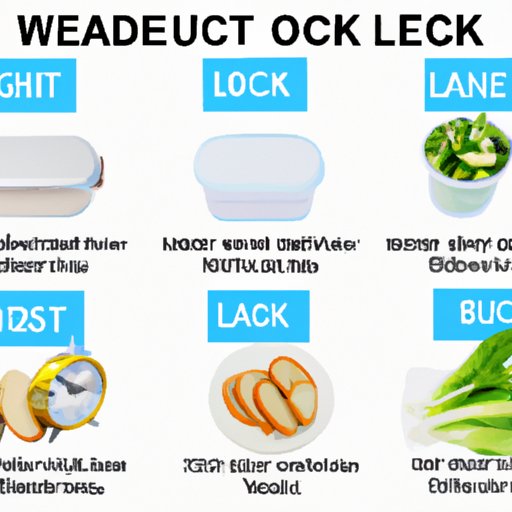10 Tips to Achieve Quick Weight Loss
The journey towards achieving weight loss goals can be a daunting task, but it is a necessary one. Overweight and obesity are associated with various health conditions that can affect the quality of life. Therefore, it is important to adopt effective strategies to shed those extra pounds. This article provides ten tips to help achieve quick weight loss.
Tip 1: Cut Out Processed Foods
Processed foods are linked to weight gain and can significantly hinder weight loss efforts. These foods are typically high in calories, unhealthy fats, sugars, and sodium. To achieve quick weight loss, it is advisable to avoid foods like canned foods, sugary drinks, snacks, and other processed foods. Instead, opt for whole foods like fruits, vegetables, beans, and lean proteins.
Tip 2: Increase Daily Activity Level
Increasing daily activities can help burn calories and boost the weight loss process. Simple steps include walking instead of driving, taking the stairs instead of the elevator, or even going for a morning jog. One can also incorporate a thirty-minute workout routine, such as strength training or cardio, into their daily routine. This tip is not only beneficial for weight loss goals but also for overall health and wellness.
Tip 3: Practice Mindful Eating Techniques
Mindful eating is a powerful weight loss tool. It involves being present when eating and paying attention to hunger and fullness cues. It helps reduce impulse eating, overeating, and emotional eating. To practice mindful eating, eat slowly, and chew food well. Also, avoid distractions when eating, such as smartphones or television. Enjoying meals with loved ones without distractions is an excellent way to increase the mindful eating experience.
Tip 4: Limit Food Portions
Limiting food portions in meals can help achieve quick weight loss. Reducing portion sizes aids in controlling calorie intake and reducing overeating habits. Using a small plate, measuring utensils, or pre-portioning meals can help control portion sizes.
Tip 5: Get Adequate Sleep
Getting enough sleep is essential for overall health, and it also plays a critical role in weight loss. Sleep deprivation can increase hunger hormones, leading to overeating and weight gain. Aim for a minimum of seven hours of good quality sleep every night. Establishing a sleep routine, avoiding caffeine at night, and avoiding mobile devices in bed can improve sleep quality.
Tip 6: Drink Plenty of Water
Water is an essential element for the human body and increases feelings of fullness. Drinking water before meals can promote weight loss by reducing calorie intake. It is advisable to drink about eight glasses of water daily.
Tip 7: Incorporate High-fiber Foods
Incorporating high-fiber foods, such as whole grains, fruits, vegetables, and legumes, into meals can enhance the weight loss process. High-fiber foods produce feelings of fullness, control blood sugar levels, and aid in digestion. Some of the best examples of high-fiber foods include oatmeal, broccoli, berries, and lentils.

Tip 8: Track Food Intake and Progress
Tracking food intake and progress helps with conscious eating and understanding what one should eat. It helps identify unhealthy eating habits, unhealthy snacking tendencies, food sensitivities, and other aspects of food consumption that can hinder weight loss. Mobile applications are available that can track food intake, calories, and nutrient composition in meals. Body measurements and weight measurements could be tracked to monitor progress.
Tip 9: Stay Consistent and Patient
Consistency and patience are critical to achieve long-term weight loss goals. Quick fixes often result in temporary results. A consistent and patient approach leads to sustainable and long-term results. Celebrate small achievements, and keep in mind that slow progress is still progress towards the ultimate goal.
Tip 10: Seek Professional Help If Necessary
Weight loss is a complex journey, and seeking professional help is essential for some individuals. Professional help can range from dietary supplements, dietary consultations, and medical interventions, depending on one’s specific needs. Consulting a qualified healthcare professional before starting a weight loss program is recommended.
Conclusion
Weight loss is a challenging journey that requires discipline, and the ten tips presented in this article are a great place to start. Consistency, patience, and most importantly, a positive attitude, are vital to achieving speedy and long-term results. One’s motivation and commitment to adopt healthy habits ultimately determine the success of their weight loss journey.
